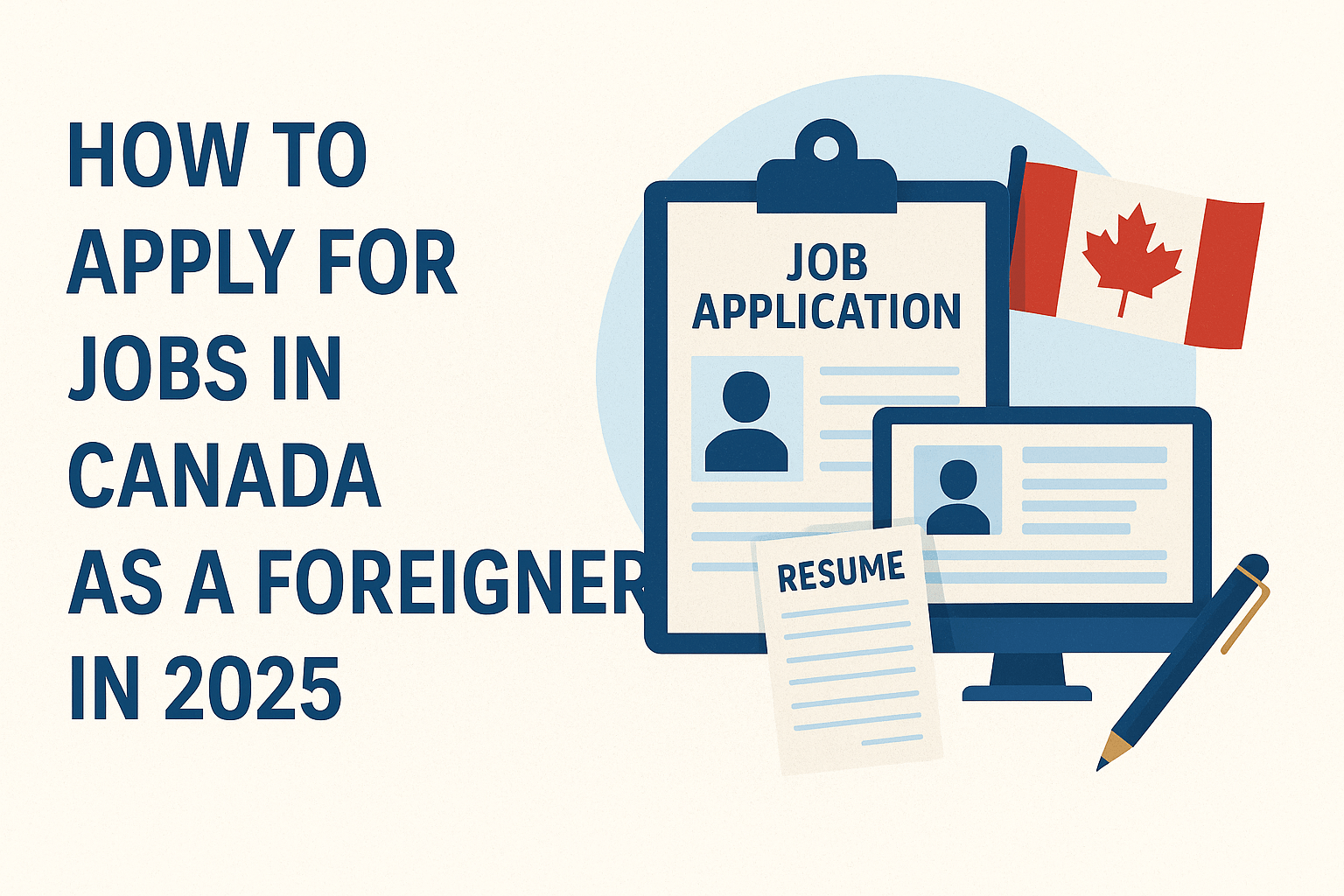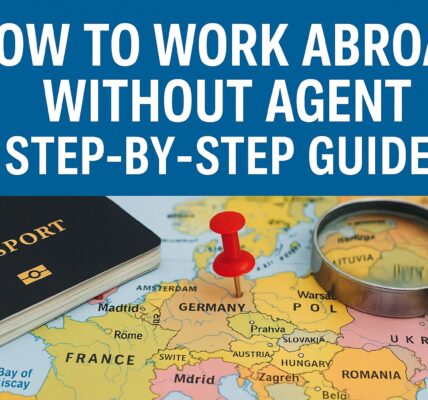How to Apply for Jobs in Italy as a Foreigner – Complete Guide
Applying for jobs in Italy as a foreigner can be a game-changer for your international career. Whether you’re aiming to work in Italy’s thriving fashion industry, tourism, agriculture, or tech sector, the country offers diverse job opportunities for skilled foreign nationals. In this article, I’ll guide you step-by-step on how to find work in Italy, apply effectively, and secure the right work visa. From understanding requirements to practical job search tips, this guide is tailored for non-EU citizens and expats ready to make Italy their next career destination.
Why Work in Italy?
Italy is known for its high quality of life, strong cultural values, and competitive industries. From northern business hubs like Milan to southern coastal towns, job opportunities for foreigners are expanding in 2025.
Key industries hiring foreigners in Italy:
- Tourism and hospitality
- Healthcare and elderly care
- Education (especially English teaching)
- Engineering and IT
- Agriculture and seasonal jobs
- Fashion and design (Milan-based roles)
Job Requirements for Foreigners in Italy
1. Eligibility Criteria
To apply for jobs in Italy as a foreigner, ensure you meet these general requirements:
- Valid passport
- Work visa or EU Blue Card (for non-EU nationals)
- Recognition of academic or professional qualifications (if applicable)
- Language proficiency (basic Italian is essential, though some sectors require English only)
2. Language Requirements
Although Italy welcomes foreign professionals, many employers expect at least B1 level Italian, especially for public-facing roles. For tech and academic roles, English may suffice.
3. Work Visa for Non-EU Citizens
If you’re from outside the EU, you’ll likely need one of these:
- Work Visa (National Visa Type D) – Sponsored by employer
- Seasonal Work Visa – For agriculture/tourism (6–9 months)
- Self-employment Visa – For freelancers or remote workers
- EU Blue Card – For highly skilled professionals
How to Find a Job in Italy as a Foreigner
1. Top Job Portals in Italy
Use job portals to browse jobs and apply directly. Here are some trusted platforms:
- Indeed Italy
- LinkedIn Jobs – Italy
- InfoJobs.it
- EURES Job Mobility Portal
- Jobrapido
- Cliclavoro (Italian Government Portal)
💡Pro Tip: Use Italian keywords like “offerte di lavoro” or “lavoro per stranieri” to improve results.
2. Company Career Pages
Many large Italian companies like Eni, Ferrero, Luxottica, and UniCredit post job vacancies directly on their sites. Search for “Lavora con noi” sections (Italian for “work with us”).
How to Apply for Jobs in Italy (Step-by-Step)
Step 1: Prepare an Italian-Style CV
Here’s how to format your CV for Italian employers:
- Length: Max 2 pages
- Language: Preferably in Italian
- Include: Headshot (optional), nationality, date of birth, work experience, education, language skills
- Add a short professional summary in Italian or English
Step 2: Write a Tailored Cover Letter
Keep it to one page and address the employer directly. In Italy, cover letters carry weight, especially in traditional sectors.
- Mention why you want to work in Italy
- Express knowledge of the company
- Highlight your transferable skills and cultural adaptability
Step 3: Submit Application on Company Site or Job Portal
Upload your CV and cover letter on the job listing page. Ensure your documents are in the required language.
Step 4: Prepare for Interview
Most interviews follow this pattern:
- Round 1: Phone screening
- Round 2: In-person or video interview
- Round 3: Final offer discussion
💡 Learn Italian greetings and professional vocabulary—it helps make a positive impression.
Where Foreigners Are Most Likely to Get Jobs in Italy
Best Cities for Job Seekers:
- Milan – Finance, fashion, IT
- Rome – Government jobs, education, NGOs
- Bologna – Engineering and research
- Florence – Tourism and art
- Turin – Automotive, tech
- Naples & Bari – Seasonal and logistics roles
Seasonal and Low-Skilled Jobs for Foreigners:
Many foreigners start with roles in:
- Fruit picking or farming (May–September)
- Hotel and hospitality services
- Retail (especially during tourist season)
- Caregivers and home assistants (badanti)
Tips to Increase Your Chances of Getting Hired in Italy
✅ Learn Basic Italian
Enroll in free or low-cost Italian language courses online.
✅ Apply Early in the Year
Visa quotas are released annually. Early applications give you a better chance.
✅ Consider a Job Seeker Visa (for skilled workers)
Italy recently introduced permits allowing foreigners to enter for job search purposes under specific conditions.
✅ Network with Expats
Join communities like:
- InterNations Italy
- Facebook groups for job seekers in Italy
- LinkedIn expat groups
Common Mistakes Foreigners Make (and How to Avoid Them)
- Using a Non-Italian CV Format – Use local standards
- Not Checking Visa Sponsorship – Apply only where sponsorship is available
- Ignoring Small or Regional Job Sites – Some jobs are only posted in Italian
- Not Following Up – Send polite follow-up emails after applying
- Underestimating Bureaucracy – Document verification takes time
Work Permits and Residence for Foreigners
Once you secure a job offer:
- Your employer will apply for a nulla osta (authorization to work)
- You apply for the visa at the Italian embassy in your home country
- On arrival, you must request a Permesso di Soggiorno (residence permit) within 8 days
Final Thoughts: Is It Worth Moving to Italy for Work?
If you’re strategic, patient, and proactive, yes, working in Italy as a foreigner in 2025 is worth it. The key lies in choosing the right roles, following proper application steps, and embracing Italian culture and language.






1 COMMENTS
Comments are closed.